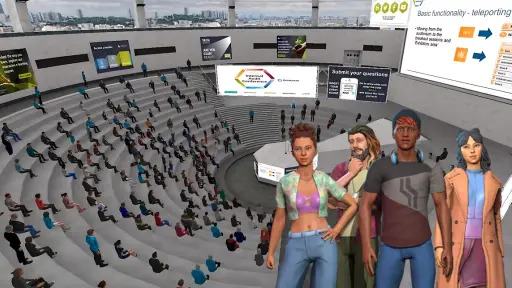The world crisis caused by the coronavirus has caused a 360º turn in a lot of our lives and we’ve really had to rethink many of our day to day routines. And not only on a personal level, where the impact of this new situation has been of huge, but also in regard to our professional lives.
There’s no denying that the future of work, something that professionals have been predicting and defining for years, has shown up and has shown up quickly confirming that remote working is our new reality and frankly, it’s likely here to stay.
One of the business consequences of COVID-19 is that the economic and productive landscape changed completely in a matter of days. What was considered normal a few months ago- going to work in offices or holding daily physical meetings – are now exceptional situations.
Although it is true that many countries and businesses have already begun opting for remote work as a more permanent way of working, many companies are still on the fence about this option as possible within their policies. Within a week’s time, everyone was able to see how teleworking has been the only -and obligatory- way out for many businesses to keep moving forward successfully.
Now that we can breathe a little easier and have seen for ourselves how remote employees are the present and future of corporate activities, it is time to know and understand all these changes. The objective: is to learn from them and continue applying them in the day-to-day business.
Trends that will impact the workplace during and after the coronavirus

The panorama of uncertainty that marked the beginning of the crisis caused by the pandemic, where contagion in the workplaces was a huge risk, displacements were very restricted and borders were closed, was the key for companies to look for effective and efficient alternatives.
The solution came at the hand of technology: to use the great advances that we have at our disposal in online and virtual environments. And now, the concept of working from home at different levels (from performing a routine task to holding meetings via video conference to holding all kinds of events and corporate activities) is a reality.
To learn from this new normal and improve upon it, it’s important to know which are the main trends that are already impacting the future of work:
- A new hyper-connected mentality.
If years ago someone asked whether all our actions would be visible on the web, we would not have believed it. But the truth is that today, our lives are public as a result of the continuous use of social networks and mobile devices.This mentality is translating into a change in attitude in companies, forcing them to redefine many strategies to reach their customers and to adopt new measures aimed at innovation. Both are mandatory outlets if they want to continue to have a presence in an increasingly globalized and competitive market.
- The unstoppable advance of technology.
Cloud services, big data, virtual worlds, and all the new platforms that are playing a leading role in the current panorama have changed and will continue to change the way we work. What was possible only yesterday to do in a face-to-face manner, is possible today without any physical contact. In fact, the advantages of virtual events are such that more and more companies are joining this trend. - New generations are on the move.
Young people are part of a group that is driving the most imminent changes making their influence on companies increasingly important. Their world is 100% digital and new technologies are essential in their working environment. One of their objectives is to work as remote employees and carry out corporate activities from anywhere. For them, this is completely normal, and if companies want to retain and harness the qualities of these young talents, they must invest in solutions to retain and motivate them.
Virtual corporate activities: The present of the new normal
The day-to-day of most companies is full of events, presentations, meetings and various appointments. And all of them are adapting to the new times that demand to break with the physical barriers. It is no longer necessary to be in the same space to connect or to be able to communicate. What once seemed to us to be the fruit of science fiction, is more than a palpable reality nowadays.
The best example can be found in immersive virtual activities, a trend with many followers among event organizers. These are very real experiences that take place in imaginary worlds.
There are already many types of interactive corporate activities that a company can implement for customers, headquarters or even among their own employees. Here are some examples:
- Escape rooms. A team building activity whose main objective is to not only evaluate the strengths, weaknesses, opportunities, and threats of a team but to also find a moment for fun. They are an ideal alternative for employees who work remotely and/or in other countries, giving them the opportunity to carry out a live group experience, optimize internal communication, and improve the overall work environment. In fact, the most developed skills in this type of virtual event are leadership, teamwork, decision making, and creativity.
- Organizational Coaching. Workshops that offer their participants the opportunity to increase their knowledge of themselves as a team. They are designed to answer questions such as why they do what they do and, above all, how they do it. This is a clear example of how virtual team building activities are able to increase the personal and professional growth of employees, and therefore, improve their performance.
These are just a couple of examples of the possibilities opened up by the irruption of virtual worlds into the corporate event environment. Meetings with workers from different locations, events with customers, employee training… the list of activities that the coronavirus has prohibited -due to the proximity between its attendees- is long, and virtual technology has become the solution for companies to continue with their activity without the need to travel.
Now we can take advantage of this opportunity, improve their presence in our businesses and continue to depend on a working future that is more present than ever.



